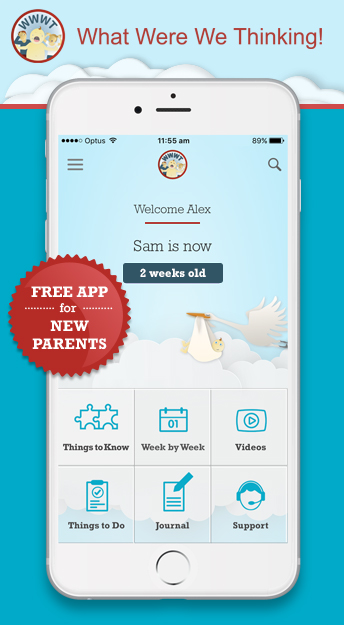On-the-job occupational fatigue for new parents
By Jane Fisher

There has been a lot of research about work-related fatigue and its impact on health, mostly focused on the military, manufacturing, transport, media and the health sectors. Severe occupational fatigue is associated with prolonged or irregular working hours, particularly with early starting times and overnight work. Any work taking place between 1am and 6am increases the risk of fatigue because of disruptions to circadian rhythms. It is especially problematic in highly mentally and emotionally demanding that don’t have enough rest breaks. Occupational fatigue can affect your emotions, how you think. In a workplace setting, it is the responsibility of employees to manage occupational fatigue of staff.
Unfortunately, our homes are not considered “workplaces” so they don’t really benefit from occupational safety regulations that manage worker fatigue. Looking after a newborn baby is far more time consuming than can be imagined and all other household activities are slower and more difficult to complete while you are caring for a baby. It is not accurate to define the times when an infant is asleep as spare time, not only because there are invariably other household tasks to complete but also because there is no true freedom either to rest or to pursue leisure activities because of the primary responsibility for the baby.
And even on weekends, the work continues and, in general, women have much less leisure than had been anticipated. The repetitive work of managing a household and caring for a baby cannot be completed by one person. Nevertheless, the prevailing stereotype is that paid employment is defined as work and mothering responsibilities as “not work”. Many women take on this workload singlehanded to spare their partners who “are working”. The notion that a man should “help” his partner to care for the baby and the household chores reinforces the stereotype that it is “her work”, which he is assisting, rather than their work which needs to be shared fairly.
Unsettled behaviours including prolonged inconsolable crying; resistance to soothing; difficulties settling to sleep; waking after short sleeps and frequent overnight waking are common in newborn babies. One of the main contributing factors to maternal fatigue is unsettled infant behaviour which leads to extended periods of interrupted and insufficient sleep, especially the overnight care for the baby isn’t shared by both parents or partners. Research shows that 46 per cent of mothers of 6- to 12-month old babies attending community clinics for routine health checks described a sleep problem such as: co-sleeping; being dependent on suckling to go to sleep; prolonged time to settle; frequent overnight waking; intense crying associated with night-time waking; and short daytime sleeps[1]. Maternal fatigue diminishes when strategies to create a routine for the baby are implemented, leading to fewer overnight wakings; increased daytime sleep; and reduced crying and fussing as well as the improved mood and efficiency of mum.
[1] Lam P, Hiscock H, Wake M Outcomes of Infant Sleep Problems: A Longitudinal Study of Sleep, Behavior, and Maternal Well-Being. Pediatrics 2003; 111(3): 203 – 207.
Jane Fisher is Clinical and Health Psychologist and Professor of Women's Health. She is Director of the Jean Hailes Research Unit located at the School of Public Health & Preventive Medicine, Monash University, and has been a sessional consultant to Masada Private Hospital Mother Baby Unit since 1996. Jane's research focuses on understanding and addressing the factors that influence women's and men's health and wellbeing during pregnancy and the life phase of caring for young children.
Posted in: A new reality Baby 0-4 weeks Parenting Experts Your needs








